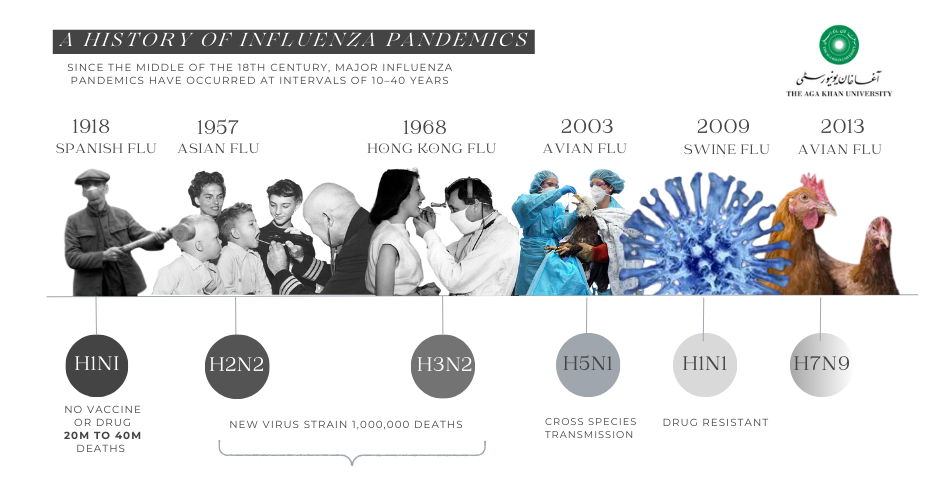
Pregnant in November? Get your Influenza vaccine
It is November and we are right in the middle of influenza season—so it is a great time to get vaccinated, especially if you are pregnant, elderly or have underlying chronic conditions.
These groups of people are more vulnerable: Children, because they haven't had a well-developed immune system but also because they interact with elderly grandparents, so they're more likely to transmit as well.
Pregnant women are in a kind of immuno-compromised state. By giving the vaccine to the mother, you are also protecting the fetus at least for six months of life till the antibodies last. When mothers are vaccinated, antibodies are passed to the babies and protect them for the first 6 months of life. These viruses and bacteria (Influenza, RSV, Group B Streptococcus) are the ones that cause neonatal deaths and in fact, Pakistan has the highest neonatal mortality rate in the world—even more than Afghanistan (45 out of 1000 live births).
Influenza is an acute respiratory infection caused by viruses. Symptoms vary with some people getting mildly sick, others severely ill and some requiring hospitalization. People can die of influenza as well.
Influenza is thus a serious disease and not the common cold. The common cold is caused by a variety of viruses (Coronaviruses are one of them, like SARS-CoV-2).
Approximately one in seven people is the rate of influenza infection (globally one billion people get it). Anywhere between 3 million to 5 million people get severe influenza, which is close to the population of Karachi’s District East.
In Pakistan, influenza season runs from October to April and can be contracted by anyone.
Some vaccines are given in the Expanded Program of Immunization (EPI) in Pakistan. So, in childhood, everyone gets them, along with booster doses at intervals. But then you are done for life and you never need to get those vaccines again. But this is not the case for influenza.
You have to be vaccinated against influenza each year because the virus is constantly mutating. Novel influenza viruses are the ones that can cause pandemics. The deadliest one was the Spanish Flu in 1918, caused by the H1N1 strain, that led to more deaths than those in the two world wars combined.
In response to pandemics, the global health authorities started surveillance to keep track. Pakistan is part of the WHO Global Influenza Surveillance Network and has its own National Influenza Surveillance System of which certain national hospitals are a part.
Modes of transmission or how influenza spreads:
- A droplet infection can travel six feet.
- The aerosol can travel a very long distance.
- Fomites (objects or materials) can also spread it. Fomites are anything that you carry, your mobile, or you touch, door knobs.
The WHO recommends annual influenza vaccination prior to the beginning of the influenza season.


